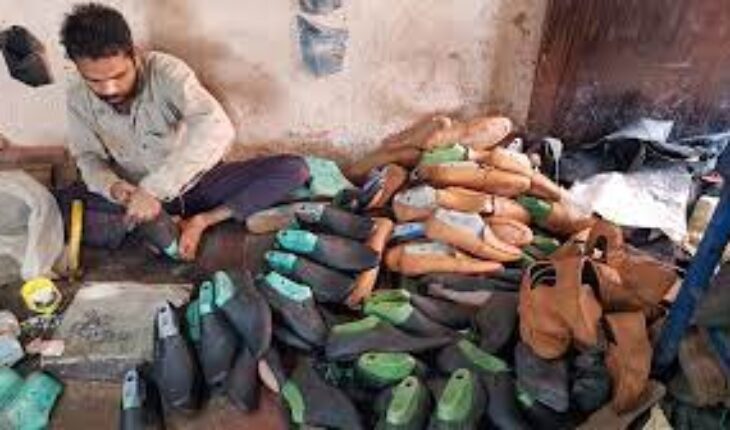Agra: The footwear manufacturers in Agra have threatened to shut down the units over the government’s decision to enforce ISI standardisation in the footwear production process.
The move, which requires ISI marks on all footwear priced above Rs 150, has sparked concerns among small businesses in the cottage footwear manufacturing sector.
Upendra Singh Lovely, chairman of Agra Shoe Manufacturers Association highlighted that the expense of acquiring the ISI mark for each new footwear design can range from Rs 5, 000 to Rs 10, 000, depending on the size of the business. Given that small businesses often operate on narrow profit margins, this additional cost becomes a major financial challenge.
Pointing out another concern, he said, “ISI mark will lead to the standardisation of footwear, which could stifle innovation. The ISI mark is awarded to products that meet certain standards of quality and safety. This means that all footwear that bears the ISI mark will be of a similar standard. This could make it difficult for small businesses to differentiate their products from those of their competitors.”
According to Somdatt Pippal, chairman of Kendriya Bhim Yuva Vyapar Mandal, the most affordable footwear in Agra is typically priced around Rs 150 and experiences high demand, and since this type of footwear is primarily produced by multi-generational family-run cottage units; the production process lacks significant standardisation.
“Imposing standardisation requirements on these units, would force them out of business as compliance with the standards would be challenging while maintaining their competitive price advantage,” he said.
He highlighted that the cost of obtaining the ISI certification process is prohibitive for cottage units. Additionally, the requirement for footwear to be manufactured in a factory setting poses challenges for these smaller workshops that do not meet ISI’s manufacturing standards.
Delegates from organisations, including Agra Joota Laugh Udyog Utpadak Samiti and Agra Footwear Manufacturers and Exporters Chamber (AFMEC), warned of potential negative impacts, such as “financial burdens, product standardisation, and job losses” within the cottage footwear manufacturing sector.






